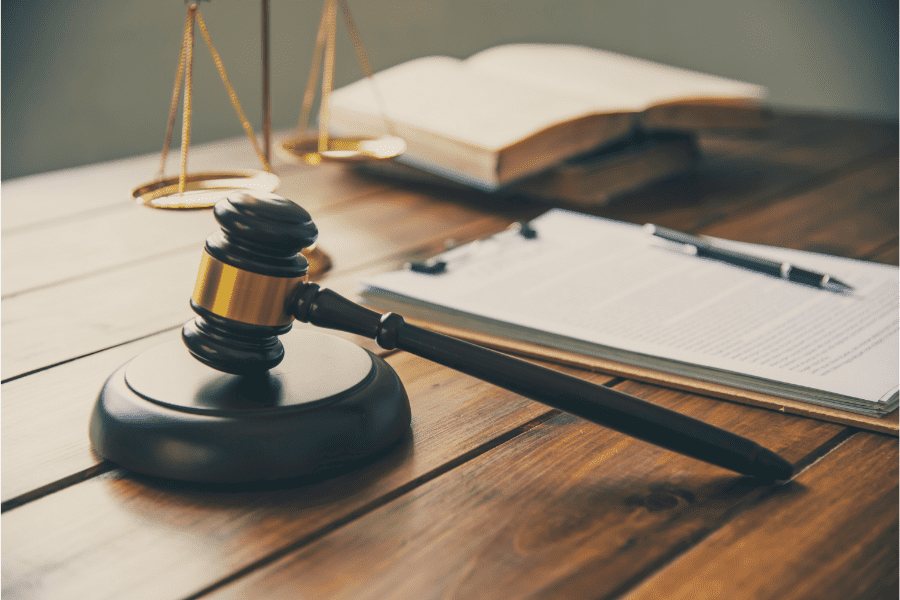Understanding the Burden of Proof in Thai Civil Litigation: A Guide by a Bangkok Law Firm

Introduction: Understanding the Burden of Proof in Thailand’s Civil Litigation System
The burden of proof in Thailand is a fundamental legal concept that governs how facts must be established in civil litigation. It defines which party must prove the allegations they bring before a court and significantly affects the outcome of disputes.
For anyone engaged in Thai civil litigation, whether clients or practitioners, understanding this principle is vital. As a lead law firm in Bangkok, we emphasize the importance of grasping the nuances of burden of proof to effectively navigate Thai courts and secure favorable results.
This comprehensive guide explains the burden of proof in Thailand, highlighting statutory provisions, practical examples, and strategic considerations specific to the Thai legal context.
What Is the Burden of Proof in Thailand?
Legal Definition and Practical Meaning
In Thai civil law, the burden of proof (หน้าที่ในการพิสูจน์) refers to the obligation of a party who makes a claim or allegation to substantiate it with evidence. Without satisfying this burden, the party risks losing the dispute on that point.
The guiding legal principle is:
“ผู้กล่าวอ้างต้องเป็นผู้พิสูจน์”
(“He who asserts must prove.”)
This principle is aligned with international civil procedural norms and is embedded in Thailand’s Civil Procedure Code.
Distinction Between Burden and Standard of Proof
While the burden of proof determines who must prove, the standard of proof determines how convincingly the fact must be established. In Thai civil cases, this standard is generally the “preponderance of evidence” (ความน่าจะเป็นมากกว่า) – meaning the fact is more likely true than false.
For more details on evidentiary standards, the United Nations provides a helpful overview on civil procedure standards:
UN Legal Instruments on Civil Procedure
Thai Legal Framework on Burden of Proof
Statutory Basis: Civil Procedure Code
The burden of proof in Thailand is governed primarily by the Civil Procedure Code, particularly Section 84/1, which states:
“The party who makes an allegation must prove it. If the party fails to prove the allegation, the court may refuse to accept it and may decide against that party.”
This codification is crucial for litigants in determining their evidentiary responsibilities.
Relevant Judicial Interpretations
Thai courts consistently uphold this principle and emphasize the importance of clear and convincing evidence. In some cases, the burden of proof may shift when a party introduces new facts or defenses, but the initial onus always lies with the claimant.
Practical Examples of Burden of Proof in Thailand
Example 1: Debt Claim Case
-
Plaintiff’s Position: The plaintiff claims the defendant owes a loan amount.
-
Defendant’s Position: The defendant denies the loan agreement.
Here, the burden of proof in Thailand lies on the plaintiff, who must present documentation such as promissory notes or witness testimony to establish the loan’s existence.
Example 2: Illegal Interest Rate Defense
-
Defendant’s Position: The defendant alleges that the plaintiff demanded interest rates exceeding legal limits.
In this case, the burden shifts to the defendant, who must prove that the interest rate charged violates Thai law.
For Thai interest rate regulations, the Bank of Thailand provides authoritative guidelines:
Bank of Thailand – Interest Rate Guidelines
Why Understanding the Burden of Proof Matters: Insights from a Lead Law Firm in Bangkok
As a lead law firm in Bangkok, we advise clients that misunderstanding or underestimating the burden of proof can lead to adverse outcomes, even when claims or defenses seem legally sound. Key strategic considerations include:
-
Identifying Who Bears the Burden: Parties must clearly know which facts they must prove.
-
Meticulous Evidence Preparation: Adequate documentation, credible witness testimony, and expert opinions often make the difference.
-
Anticipating Burden Shifts: New factual assertions or defenses may transfer the burden.
Common Pitfalls in Managing the Burden of Proof in Thailand
-
Ambiguous Claim or Defense: Vague or poorly defined issues can confuse the burden allocation.
-
Insufficient Evidence Submission: Even if the opposing party fails to prove, lacking one’s own proof can cause defeat.
-
Overreliance on Judicial Discretion: Courts apply the law strictly and will not assign proof obligations to parties arbitrarily.
Summary: Key Takeaways on Burden of Proof in Thailand
-
The burden of proof in Thailand lies with the party making a claim.
-
Failure to prove an allegation risks losing on that issue.
-
The Thai legal system applies this principle strictly, in accordance with the Civil Procedure Code.
-
Effective case strategy requires clear issue definition, evidence preparation, and understanding when burdens shift.
How a Lead Law Firm in Bangkok Can Assist You
Navigating the burden of proof in Thailand requires expertise and experience. Our firm, recognized as a lead law firm in Bangkok, offers comprehensive legal support in civil litigation, ensuring clients meet their evidentiary obligations effectively.
Contact us today to discuss how we can assist with your case strategy, evidence gathering, and courtroom representation.
Additional Resources
-
Thai Civil Procedure Code (Official Translation):
Thai Civil Procedure Code PDF (Unofficial) -
Understanding Civil Litigation Process – Harvard Law Review:
Harvard Law Review – Civil Litigation Overview -
Bank of Thailand Regulations:
Bank of Thailand Official Website
Frequently Asked Questions (FAQs)
What is the standard of proof in civil cases in Thailand?
The standard is the “preponderance of evidence,” meaning the fact must be more likely true than not.
Can the burden of proof shift during a case?
Yes, when new facts or defenses are introduced, the burden may shift accordingly.
How does the burden of proof in Thailand differ from criminal cases?
In criminal cases, the burden lies with the prosecution and requires proof beyond a reasonable doubt, a higher standard than in civil cases.
If you want professional guidance on managing the burden of proof in Thailand or other legal matters, trust a lead law firm in Bangkok to provide expert advice and representation.
